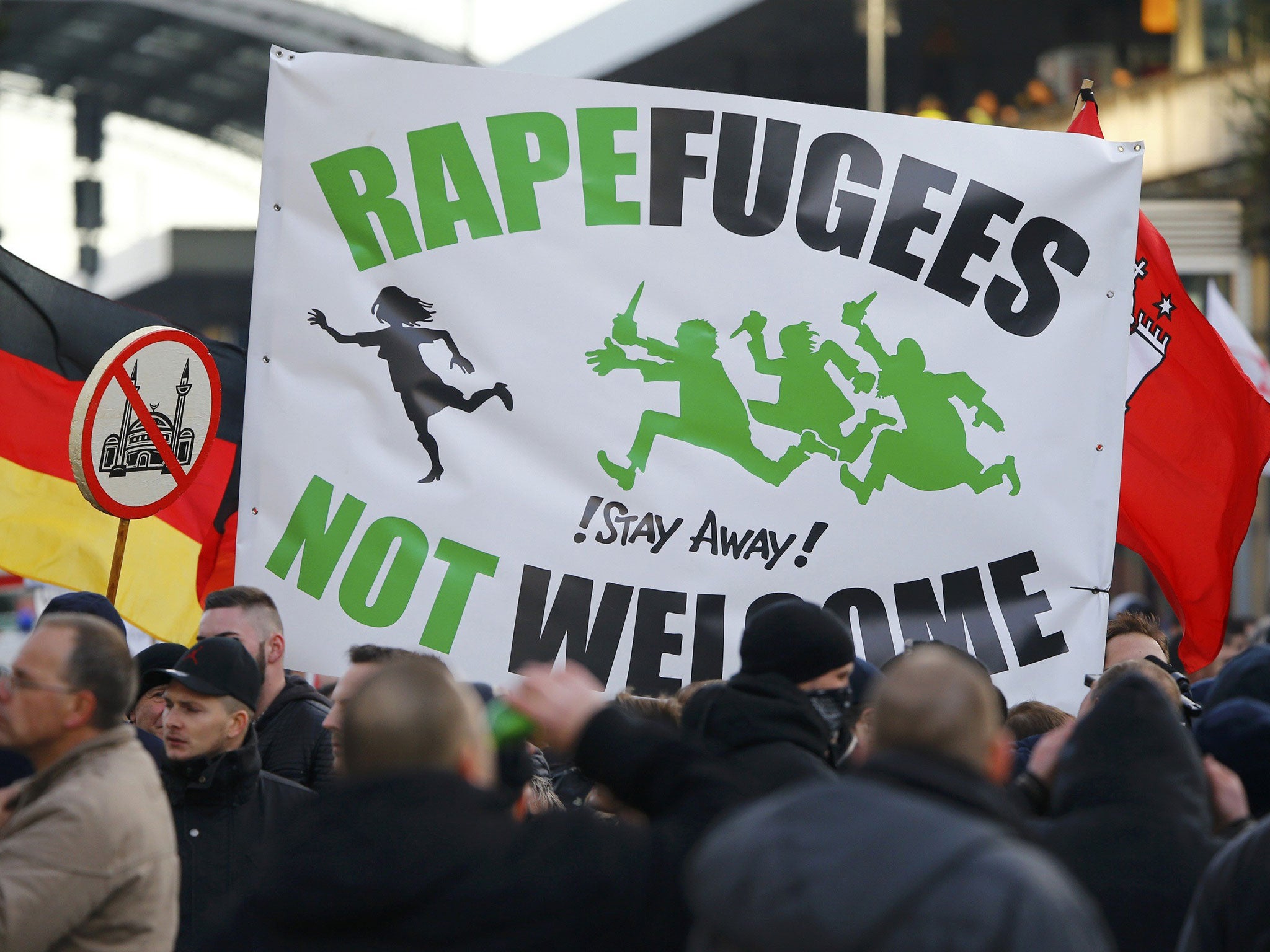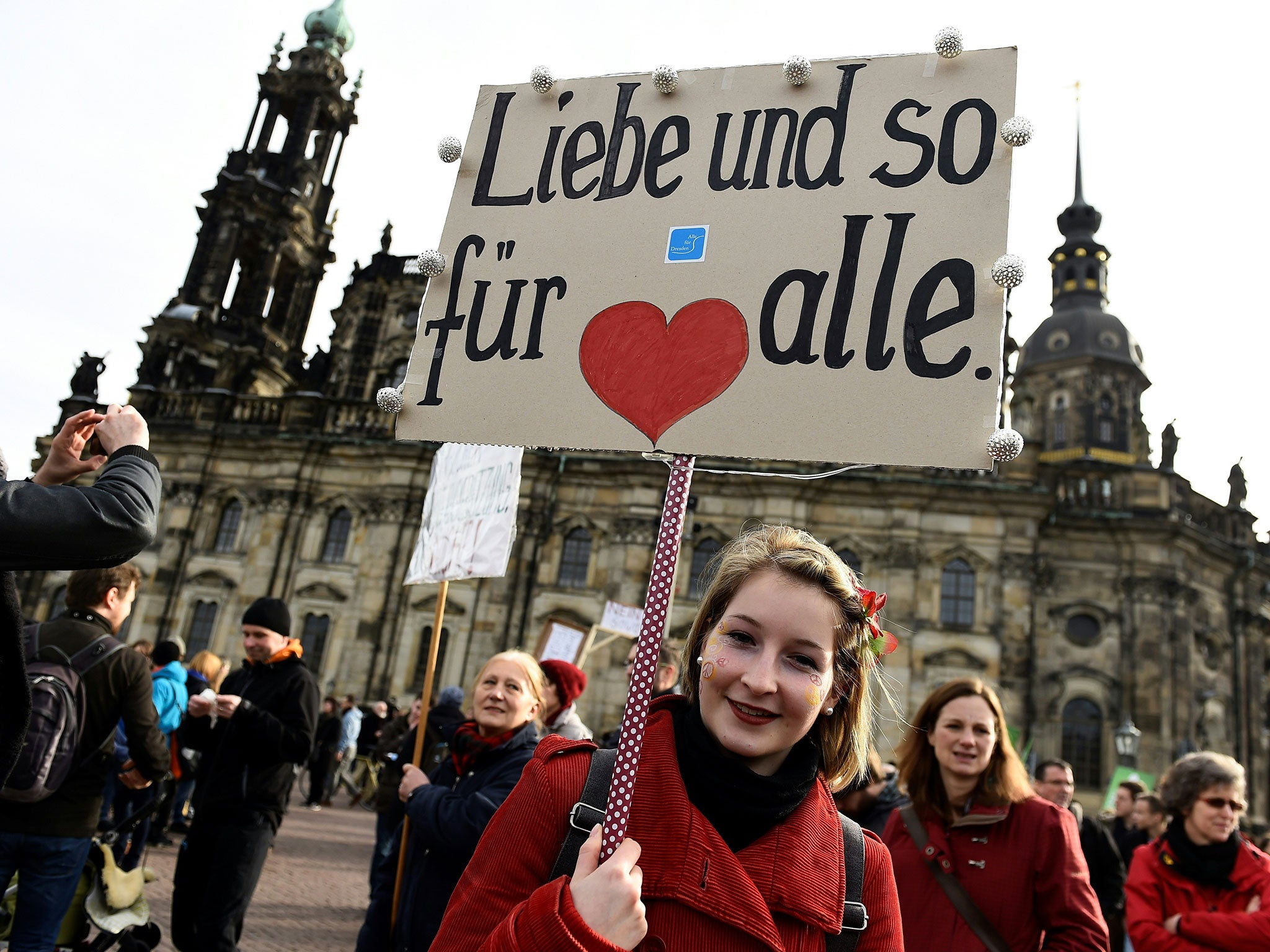Refugees responsible for tiny proportion of sex crimes in Germany despite far-right claims following Cologne attacks
Most crimes committed by migrants in 2015 were theft, counterfeiting and travelling on public transport without tickets

Your support helps us to tell the story
From reproductive rights to climate change to Big Tech, The Independent is on the ground when the story is developing. Whether it's investigating the financials of Elon Musk's pro-Trump PAC or producing our latest documentary, 'The A Word', which shines a light on the American women fighting for reproductive rights, we know how important it is to parse out the facts from the messaging.
At such a critical moment in US history, we need reporters on the ground. Your donation allows us to keep sending journalists to speak to both sides of the story.
The Independent is trusted by Americans across the entire political spectrum. And unlike many other quality news outlets, we choose not to lock Americans out of our reporting and analysis with paywalls. We believe quality journalism should be available to everyone, paid for by those who can afford it.
Your support makes all the difference.Refugees and migrants are responsible for a tiny fraction of sex crimes in Germany, a leaked police report has revealed.
Anti-immigration campaigners and far-right groups have used the assaults in Cologne and other cities on New Year’s Eve to claim that the arrival of more than a million asylum seekers in Germany is putting women at risk.
But figures from the Bundeskriminalamt (Federal Criminal Police Office) showed under 1 per cent of crimes committed by migrants in 2015 were sexual offences.
“The overwhelming majority of asylum seekers do not commit crimes,” a spokesperson said.
A detailed report seen by Germany’s Bild newspaper listed a total of 1,688 sex crimes committed by asylum seekers, refugees and illegal immigrants in 2015 – 3.6 per cent of the nationwide total of almost 47,000.
Of those, 458 were rapes or sexual assaults.
Refugees make up roughly 2 per cent of Germany’s population, the The Local reported, meaning the rate of sexual offences is disproportionately high.
But the website pointed out that the figure was “skewed” by the fact the vast majority of sexual offences are committed by men, who also make up the majority of recent migrants arriving in Germany.
The time period analysed does not include the assaults on New Year’s Eve, which are the subject of an ongoing investigation. Police have received reports of 433 reports of sexual attacks on that night in Cologne alone.
The vast majority of suspects in that case come from Algeria and Morocco and police statistics indicate that North African migrants are more likely to commit crimes than those from Syria, Iraq or Afghanistan, where the majority of refugees arriving in Germany originate.
A summary of the Bundeskriminalamt’s report released to the Independent showed that 82 per cent of offences by immigrants were non-violent, mostly theft, counterfeiting and travelling on public transport without a ticket.
In 28 recorded killings, only one of the victims was German and most incidents were between people of the same nationality.

The figures showed that while crime rose as a whole in Germany in 2015, the rate did not correspond to the huge number of people arriving and actually slowed after Angela Merkel opened the borders to Syrians in August.
Crimes committed against asylum seekers and refugees, however, are at an all-time high. More than 1,000 offences at migrant accommodation were recorded last year, including 177 violent incidents – four times the figure in 2014.
The Bundeskriminalamt also raised concern about the “radicalisation of social discourse” between groups supporting and opposing refugees, which have peaked in angry clashes at demonstrations.
Thomas de Maizière, the German interior minister, said extremist groups were “manipulating people with rumours and half-truths” and that hatred must be fought with facts.
“The current trend shows that refugees are just as unlikely to commit crimes as comparable groups among the current population,” he added. “The majority of them don't commit crimes, they are seeking protection and peace in Germany.”
Join our commenting forum
Join thought-provoking conversations, follow other Independent readers and see their replies
Comments